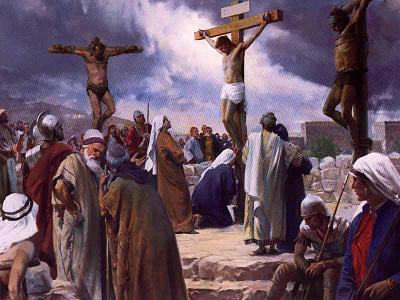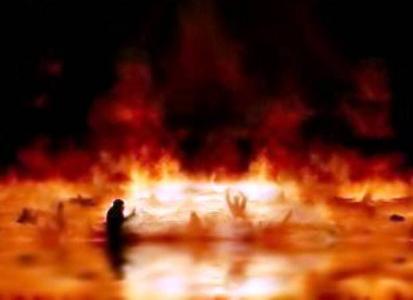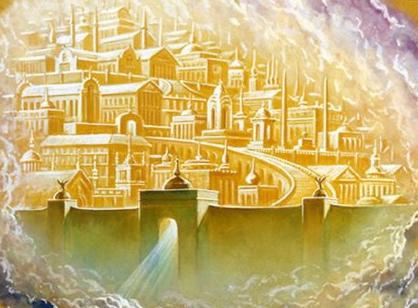- Contrary to Muslim claims, the word "Allah" is never found in the Bible in either Hebrew and Greek. The closest two words we find are the Hebrew "alah" (which means to curse, mourn or rise, and is never applied to God) and the Hebrew word "Elah" (Strongs 425) which means has been translated either oak or turpentine tree. Isa 6:13. So apart form the superficial similarity in appearance arguing Allah is in the Bible because of similarities, is like saying Mormon is in the Qur'an because it looks like Muslim.
- The first Arabic translation of the Bible came into existence about the 9th century. Nowhere is the name of Allah found in the Old or New Testament
- "Oh Ya, Oh Allah, Oh Really?" Islamic apologists like Ahmed Deedat, falsely argue that Allah is a biblical name for God derived from Hallelujah which he initially misspells "Allelujah" then further misspells "AlleluYa". Deedat comments, "Then what is Alleluya? The last syllable "YA" is a vocative and an exclamatory particle in both Arabic and Hebrew meaning "OH!" In other words YA = OH, (the vocative); and YA = (!), a note of exclamation, or an exclamatory particle, or as is more commonly known an exclamation mark. The Semite, both Arab and Jew, begins with the exclamatory particle or exclamation mark. The Westerner, in his language ends with the exclamatory particle or exclamation mark, eg. Stop! Go! Fire! Bang! Let us repeat the above Tasbih (words of praise) as an Arab or a Jew: ALLE-LU-YA will be YA-ALLE-LU because, as explained above, YA is always at the beginning in both Arabic and Hebrew. YA ALLE LU would be YA ALLA HU: Meaning, "OH ALLAH!". (Allah in the Bible, What is His Name?, Ahmed Deedat, p 37). W. E. Vine comments: "Alleluia, without the initial H, is a misspelling". The Hebrew is literally, "hah-lay-loo-yah" = "[let us] praise the Lord". So the similarity is not only invalid, it is in the wrong part of the compound word. "Allah" corresponds to "let us praise" rather than, "YAH" which is the short form of "Jehovah". So Deedat misspells the Hebrew word, finds similarity in the wrong part of the word, misspells YA and says it means "OH", when in fact it is YAH, which is a shortened "Jehovah", and fails to recognize the word "Hallelujah" literally means, "Praise Jehovah", which is the universally accepted meaning for 3500 years, until Deedat comes along! This is not a credit to Deedat's alleged educational credentials.
- "Eli or Allah?" Deedat also teaches that Jesus was calling upon the Muslim God Allah in Matthew 27:46, where the Greek reads: "Eli, Eli, lama sabachthani". Meaning, "my God My God why have you forsaken me". Deedat says of this passage, " Can't they see that the cry is to Allah? "Eli, Eli - Elah, Elah, Allah, Allah!" (Allah in the Bible, What is His Name?, Ahmed Deedat) This kindergarten approach to similar sounding words is so wild, we need not even comment on it. But it is the best Deedat has!
- In a silly attempt to show that the Islam word for God, "Allah" is superior to the word for God used by all other cultures because "you cannot make a feminine of Allah". Deedat pontificates: "This Arabic word, Allah, is never used in any other sense. There is no such thing as an "Allah-father" or an "Allah-mother" or a "Tin-Allah." ALLAH is a unique word for the only God. Arabic, like every other language, also has its rules of grammar, but in Arabic you cannot make a plural form for Allah, nor can you make a feminine of Allah. All this is very unlike the English word, God." (Allah in the Bible, What is His Name?, Ahmed Deedat) But this is deception because Deedat knows full well that in 600AD Allah, the moon God of the tribe of Muhammad, had a daughter named "Al-Lat", which is the feminine form of "Allah"! So the word "Allah" is like God and "Al-Lat" is like Godess! Arthur Jeffrey says, "The name Allah, as the Qur'an itself is witness, was well known in pre-Islamic Arabia. Indeed, both it and its feminine form, Allat, are found not infrequentlyamong the theophorous names in inscriptions from North Arabia." (Arthur Jeffrey, ed., Islam: Muhammad and His Religion, 1958, p. 85.)
In an incredible lapse of logic and common sense, Muslims actually use these two pages from the Scofield reference Bible as proof Allah is found in the Bible. With a sensationalistic headline: "Now you see Allah! Now you don't", it tricks the reader into thinking there is some conspiracy going on. ("Muslims stay up late at night thinking up new conspiracy theories and readily embrace them regardless how ridiculous they really are!)
Here is why the Muslim proof of Allah in the Bible using the Scofield reference Bible as proof, is completely false and without any merit at all:
- The Bible does not contain the word Allah, it is within a commentary section in the words of Scofield, where he uses the word "Elah" and "Alah".
- Scofield's comments do not prove Allah is used in the Bible, but are his own personal opinions. Muslims should understand that Scofield's footnoted comments on the Bible are exactly the same as Yusuf Ali's footnoted comments in the Koran.
- Scofield does not use the word "Allah", but "Elah" and "Alah".
- Commentators opinions are no proof Allah is in the Bible!
- The fact remains that in the Hebrew original text of the Bible, the word "Allah" is never found!
- Finally, it is obvious that the consensus of modern scholarship disagreed with Scofield's opinion and for this reason, removed it from the revised edition. It is very unlikely they were thinking of Islam at all when they chose to remove the comments.
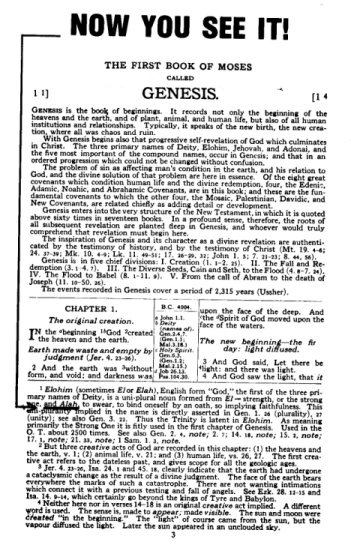

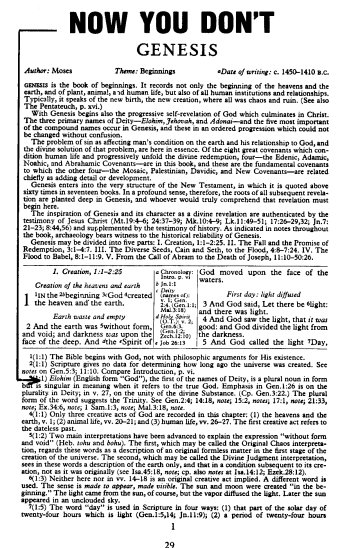


 This
will be a very respectful presentation to anyone who wants to know
about Jesus. No challenges. And there will be no criticism of any
religion, in any way.
This
will be a very respectful presentation to anyone who wants to know
about Jesus. No challenges. And there will be no criticism of any
religion, in any way. Just
as introduction, here are a few statements found in the Bible: "Until
heaven and earth disappear, not the smallest letter, not the least
stroke of a pen will by any means disappear, from the Law until
everything has been accomplished."1
Just
as introduction, here are a few statements found in the Bible: "Until
heaven and earth disappear, not the smallest letter, not the least
stroke of a pen will by any means disappear, from the Law until
everything has been accomplished."1 Ok, but what about having four Gospels? Aren't those different Scriptures, different from each other?
Ok, but what about having four Gospels? Aren't those different Scriptures, different from each other?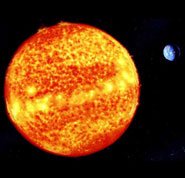 I disturbed a lot of religious people by asking, "How do you know God exists?"
I disturbed a lot of religious people by asking, "How do you know God exists?"
